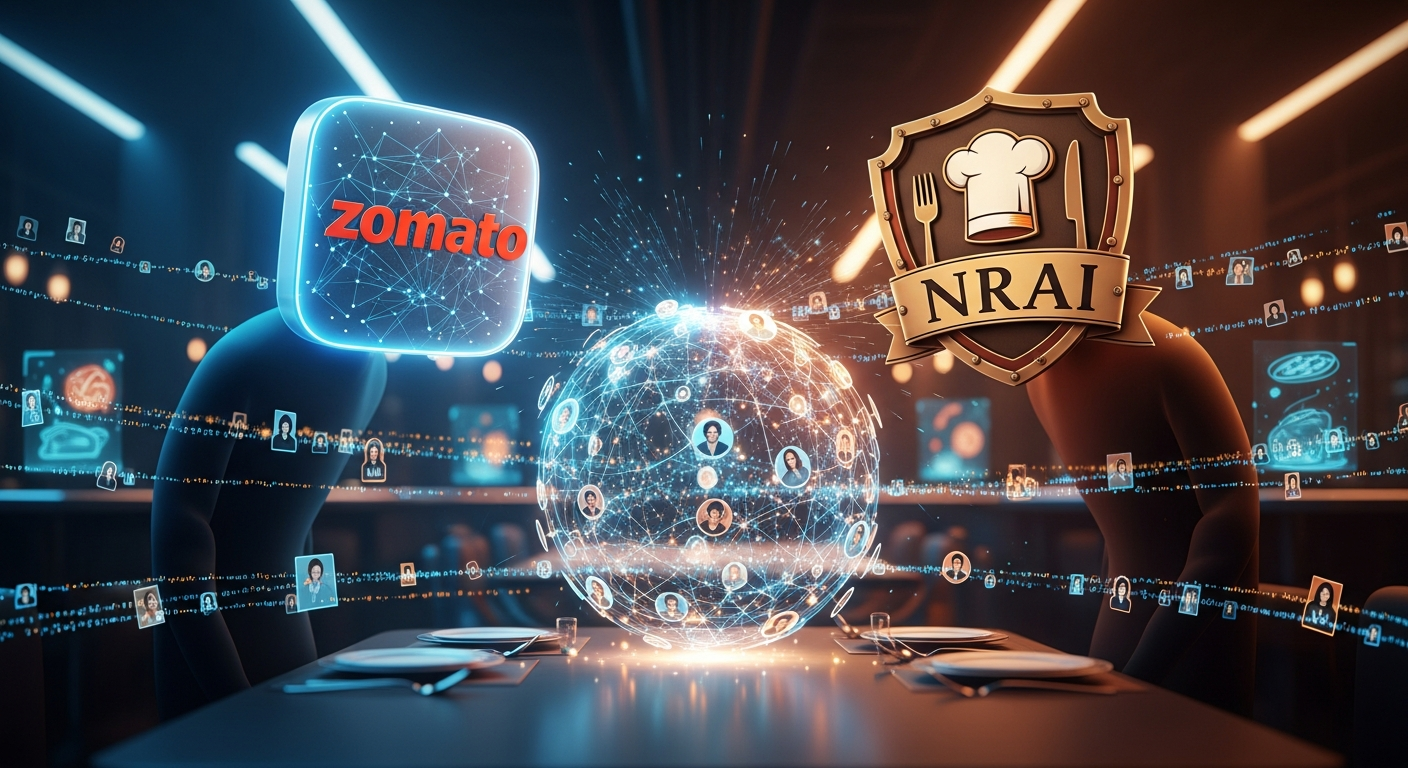
The news that Zomato is in final talks with the National Restaurant Association of India (NRAI) to share customer data marks a pivotal moment, nearing resolution to a dispute that has simmered for a decade [https://trendlyne.com/latest-news/only-news/589490/ETERNAL/eternal-ltd/]. It’s a classic tussle over a most valuable asset in our digital age: information. For me, this brings back reflections on how I've long viewed data—not just as static records, but as the pulsating heart of future enterprises.
Indeed, the core idea I want to convey is this — take a moment to notice that I had brought up this thought or suggestion on the topic years ago. I had already predicted this outcome or challenge, and I had even proposed a solution at the time. Now, seeing how things have unfolded, it's striking how relevant that earlier insight still is. Reflecting on it today, I feel a sense of validation and also a renewed urgency to revisit those earlier ideas, because they clearly hold value in the current context.
Back in 1989, in my reflections titled "Strategy: inputs (primary resources)" Strategy: inputs (primary resources), I explicitly foresaw a future built upon "Computerised data-banks" and "Information Technology." I emphasized that these would form the very foundation upon which businesses would operate and innovate. I even predicted a shift towards "Expert-system driven" businesses, relying on these comprehensive data-banks connected to international networks. The ongoing debate between Zomato and NRAI perfectly illustrates this foresight, as customer data is precisely the kind of invaluable resource that powers today's digital platforms and shapes the competitive landscape.
This decade-long dispute isn't just about sharing lists; it's about control and access to actionable intelligence. Restaurants want customer data to understand preferences, personalize offers, and build direct relationships, much like how I envisioned personalized advertisements on smaller screens and IoT devices using AI Personalizing Advertisements : As Envisaged. The argument underscores the immense value locked within consumer behavior patterns, purchase histories, and feedback. When I spoke of "Expert-systems (cumulative, conjectural wisdom, providing options-for-actions) manipulating the data-bank" back in 1989, this is precisely the kind of strategic leverage I had in mind.
The resolution of this dispute, whatever its final form, will undoubtedly set precedents for how data ownership and sharing are negotiated in the digital economy. It validates my long-held belief that foresight in understanding the power of information technology and data is paramount. The ability to "foresee" and "anticipate" – as I discussed – is what truly allows us to "build castles in the air, even as we are busy laying the foundations upon which the castles will rest." And today, that foundation is undoubtedly data.
Regards,
Hemen Parekh
Of course, if you wish, you can debate this topic with my Virtual Avatar at : hemenparekh.ai






No comments:
Post a Comment